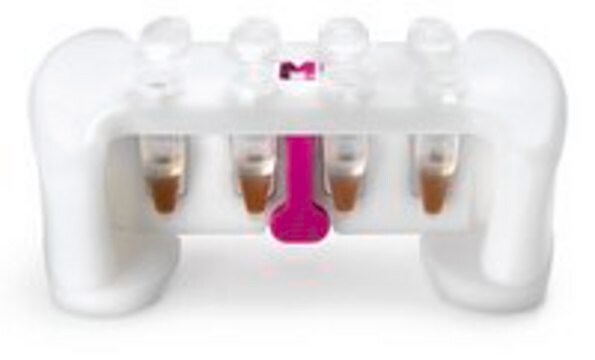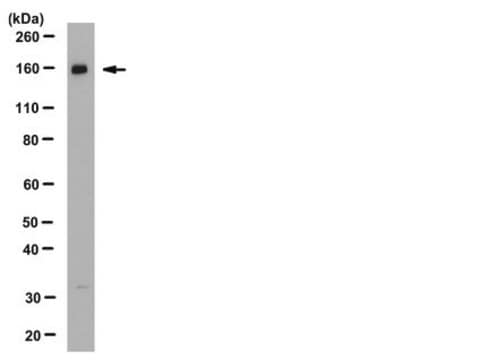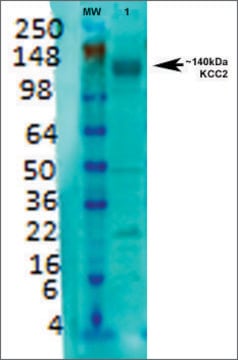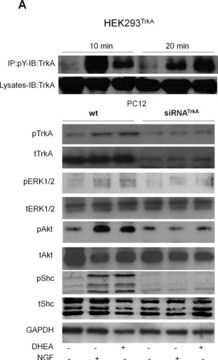AB3560P
Anti-Sodium Antibody, Potassium, Chloride Cotransporter 1
Chemicon®, from rabbit
Synonyme(s) :
Basolateral Na-K-Cl symporter, Bumetanide-sensitive sodium-(potassium)-chloride cotransporter 1, solute carrier family 12 sodium/potassium/chloride transporters), member 2
About This Item
Produits recommandés
Source biologique
rabbit
Niveau de qualité
Forme d'anticorps
affinity purified immunoglobulin
Type de produit anticorps
primary antibodies
Clone
polyclonal
Produit purifié par
affinity chromatography
Espèces réactives
human, bovine, mouse, rat
Fabricant/nom de marque
Chemicon®
Technique(s)
ELISA: suitable
immunohistochemistry: suitable
western blot: suitable
Numéro d'accès NCBI
Numéro d'accès UniProt
Conditions d'expédition
dry ice
Modification post-traductionnelle de la cible
unmodified
Informations sur le gène
human ... SLC12A2(6558)
Description générale
Spécificité
Immunogène
Application
It is recommended that the antibody be tried at 2-20 µg/mL on paraformaldehyde fixed tissue.
ELISA:
0.5-1.0 µg/mL of a previous lot was used with 1 µg/mL control peptide per well.
Optimal working dilutions must be determined by the end user.
Neuroscience
Ion Channels & Transporters
Qualité
Western Blot Analysis:
1:500 dilution detected NA+K+CL- COTRANS 1 on 10 µg of Rat Spinal Cord lysates.
Description de la cible
Forme physique
Stockage et stabilité
Handling Recommendations: Upon first thaw, and prior to removing the cap, centrifuge the vial and gently mix the solution. Aliquot into microcentrifuge tubes and store at -20°C. Avoid repeated freeze/thaw cycles, which may damage IgG and affect product performance.
Remarque sur l'analyse
Spinal cord, colon.
Autres remarques
Informations légales
Clause de non-responsabilité
Vous ne trouvez pas le bon produit ?
Essayez notre Outil de sélection de produits.
Code de la classe de stockage
12 - Non Combustible Liquids
Classe de danger pour l'eau (WGK)
WGK 2
Point d'éclair (°F)
Not applicable
Point d'éclair (°C)
Not applicable
Certificats d'analyse (COA)
Recherchez un Certificats d'analyse (COA) en saisissant le numéro de lot du produit. Les numéros de lot figurent sur l'étiquette du produit après les mots "Lot" ou "Batch".
Déjà en possession de ce produit ?
Retrouvez la documentation relative aux produits que vous avez récemment achetés dans la Bibliothèque de documents.
Notre équipe de scientifiques dispose d'une expérience dans tous les secteurs de la recherche, notamment en sciences de la vie, science des matériaux, synthèse chimique, chromatographie, analyse et dans de nombreux autres domaines..
Contacter notre Service technique








